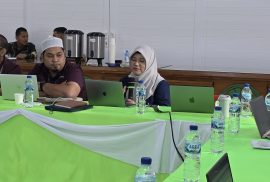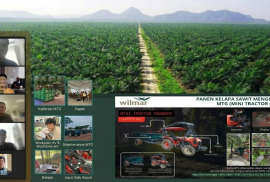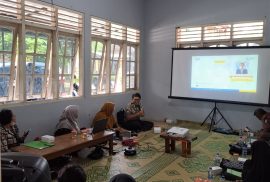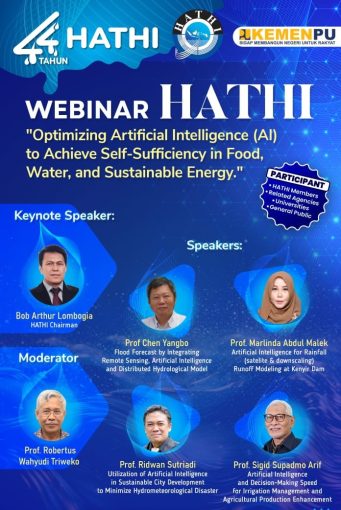
Yogyakarta, February 20, 2025 – Prof. Sigit Supadmo Arif and Dr. Andri Prima Nugroho, faculty members from the Department of Agricultural Engineering and Biosystems at Gadjah Mada University (UGM), were the keynote speakers at an international webinar organized by HATHI (Himpunan Ahli Teknik Hidraulik Indonesia). The webinar, themed “Optimizing AI in Water Resource Practices,” brought together experts from Indonesia, Malaysia, and China to discuss the role of artificial intelligence (AI) in achieving food, water, and energy security.
During the event, Prof. Arif and Dr. Nugroho presented a paper titled “Artificial Intelligence and Rapid Decision-Making for Irrigation Management and Enhanced Agricultural Productivity.” Their presentation highlighted SIPASI 2.0, an intelligent irrigation management system developed by UGM. SIPASI 2.0 utilizes AI to improve water demand forecasting and irrigation scheduling, thereby enhancing efficiency and user-friendliness. The system is currently being tested in various locations to optimize its performance and adaptability for broader dissemination.
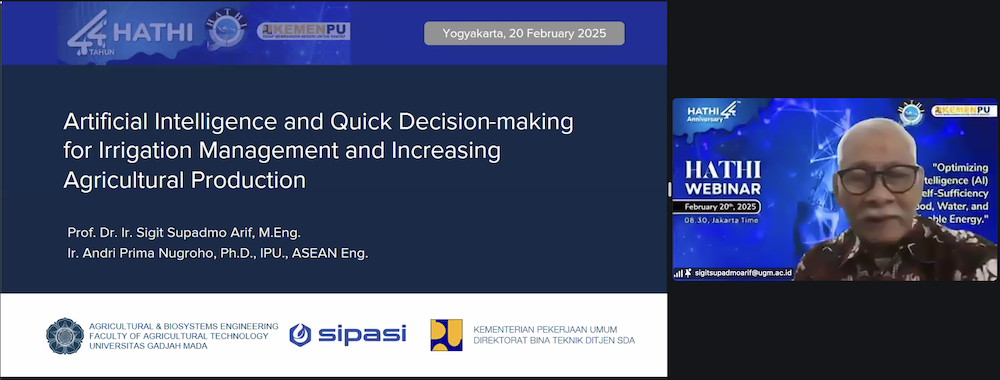
A key feature of SIPASI 2.0 is the Knowledge Management Center, which provides users with access to relevant information and an AI-based query system for quick and accurate answers. This innovation is crucial in addressing the challenges posed by climate change, which significantly impacts agricultural productivity and water resource management.
The webinar addressed critical issues related to the water-food-energy nexus and sustainable development. Discussions explored the challenges and opportunities of implementing AI in water resource management, including data accessibility and the need for robust and adaptive solutions. The contributions of Prof. Arif and Dr. Nugroho underscore UGM’s commitment to developing innovative technologies for better agricultural practices and enhanced food security.
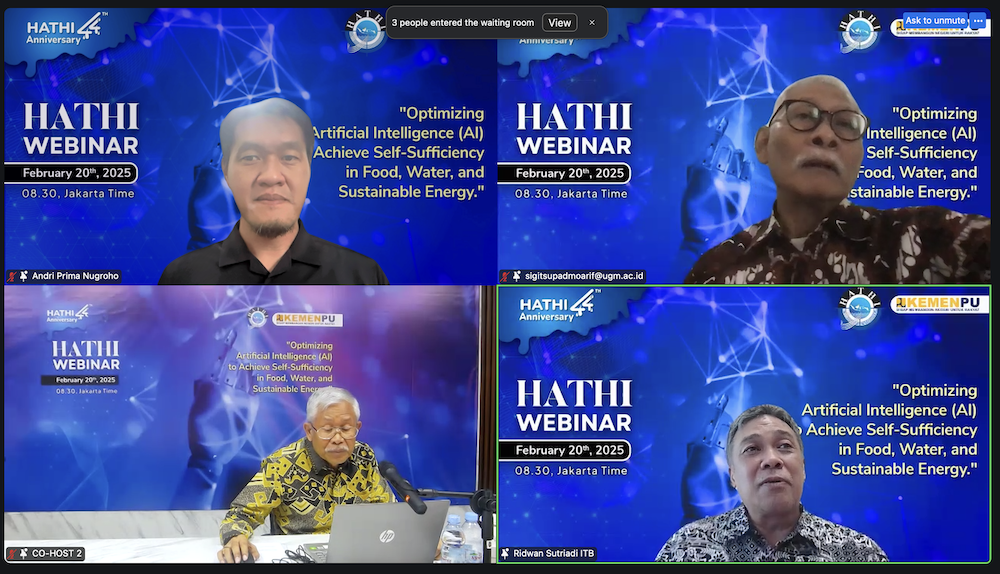
The event fostered knowledge exchange and collaboration among international experts, paving the way for future advancements in AI-based water resource management. Participants engaged in lively discussions, sharing insights on how AI can be leveraged to combat the adverse effects of climate change on agriculture and food systems.
As the world grapples with the impacts of climate change, the integration of AI in agricultural practices becomes increasingly vital. The insights shared during the webinar highlight the potential of AI to transform traditional farming methods, making them more resilient and sustainable. By optimizing agricultural productivity through intelligent irrigation systems, farmers can better adapt to changing environmental conditions.
Moreover, the collaboration between experts from different countries emphasizes the importance of a collective approach to addressing global challenges. The exchange of ideas and experiences can lead to innovative solutions that benefit not only individual nations but also the global community.
In conclusion, the HATHI webinar served as a platform for discussing the intersection of technology, agriculture, and sustainability. The insights provided by UGM’s experts are a testament to the university’s role in advancing research and development in the field of agricultural engineering. As we move forward, the integration of AI in agriculture will be crucial in ensuring food security and sustainable resource management in the face of climate change.


